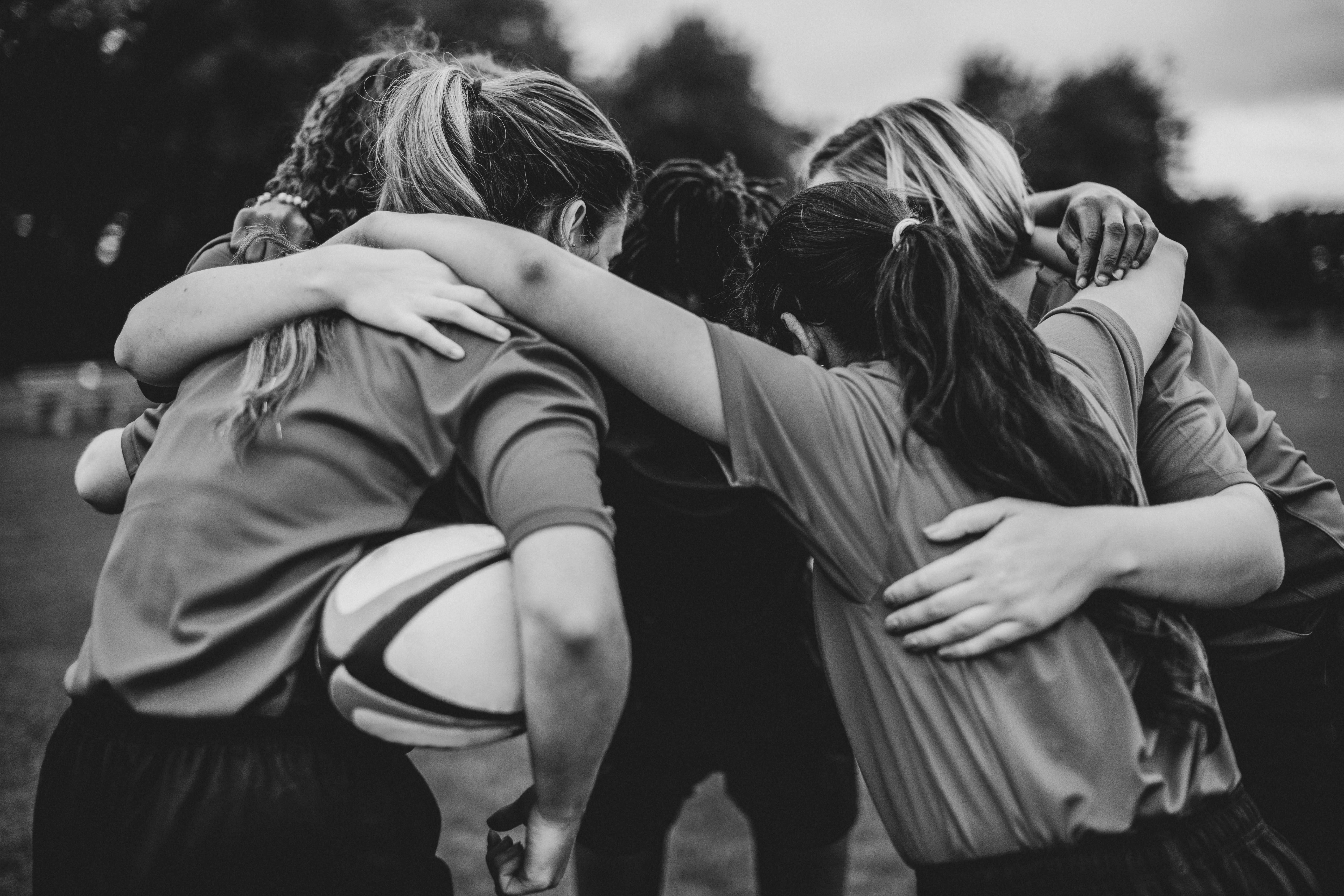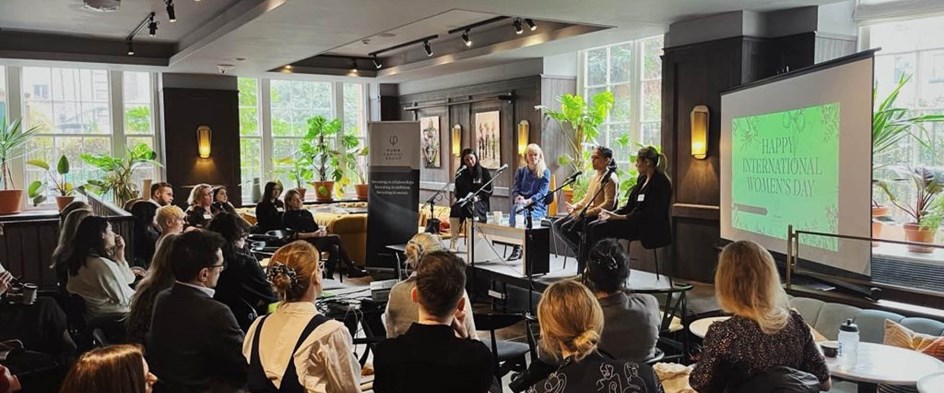
Driving the difficult conversations – International Women’s Day 2024
At Puma Capital Group, celebrating diversity across our business is really important to us. Our recent International Women’s Day event was a great opportunity to put a spotlight on how much has been done to ensure women are represented and how much still needs to be achieved.
Let’s start by looking at some of the latest data – it’s stark reading, despite all the progress that has been made in recent years, there is still so much to do:
- While the gender pay gap has been declining slowly over time – it’s still 7.7% (as at April 2023).
- The gender pay gap between mothers and fathers has grown by 93p per hour since 2020.
- 75% of women of colour have experienced racism at work and 27% have suffered racial slurs, according to the Fawcett Society.
- 90% of workplaces have no formal support for women experiencing menopause, according to a report.
- In a survey of more than 110 000 women in the UK, as part of the UK Government's call for evidence for the Women's Health Strategy, 50% of respondents felt that their pain was disregarded or overlooked.
At our own event, we brought together women who are not only leaders in their fields but could also share their very different lived experiences. Chaired by our Chief People Officer, Tarinee Pandey, our outstanding panel was Emma Heal, Managing Director at Lucky Saint, Hannah Beharry, Former No1 UK and European boxer and Kisha Burden, Managing Director, Pan European Sales at UBS.

While all the women on the panel had taken very different paths there were also common themes that came through the open and honest conversation:
The pace of change
The panel all acknowledged that change is happening but there is still a huge amount to do. When it comes to female entrepreneurs receiving funding, they are still hugely underrepresented. According to the Harvard Business Review, venture capital continues to be male dominated which Emma Heal acknowledged is an ongoing issue. Companies founded solely by women receive less than 3% of all venture capital investment and account for less than 15% of check-writers (those that provide the funding). Heal highlighted that VCs are more comfortable “betting on somebody that looks like them”. Kisha Burden also emphasised that in financial services, things are changing for the better however there still simply aren’t enough senior female role models to inspire the next generation.
Hannah Beharry highlighted that this has long been an issue in UK sport – in the boxing world when Hannah first started out she wasn’t even accepted into a boxing gym because she was female, and today female athletes are still not paid anywhere near as much as men. But slowly it’s being recognised that boxing is not just a male sport and women are better supported as they develop in the sport.
Inclusivity matters
As part of the conversation we asked our panel – what does inclusion mean to you? It’s clear that for everyone this is unique based on their lived experiences. But there were some common threads throughout the discussion such as having the inner confidence to pursue your chosen profession, not getting stuck with imposter syndrome and acting as a role model for other women. Emma Heal highlighted that one thing she’s learnt through her career with brands such as Tesco, innocent drinks and Graze.com is that what inclusion really means is being able to be your authentic self at work.
Systemic issues around inclusion
The panel were also asked about systemic issues around inclusion from a gender perspective that have impacted their career and how they have overcome them. One topic which dominated was whether particular sectors are equipped enough to support women as they develop in their careers and what more can be done to ensure women gain senior positions. But what was clear from the debate is that quotas aren’t necessarily the answer. While they can be a useful measure to drive more women onto boards and into senior roles (last year it was reported that FTSE 350 companies have met their target of achieving 40% of women on boards), just because someone fits into a quota it doesn’t mean they’re right for the role.
In the world of sport, Hannah highlighted that lack of diversity impacts all areas of women succeeding in sport. From the lack of female boxing coaches to simply not having the knowledge and facilities (even female changing rooms were a luxury when Hannah was starting out) to properly support women as they develop in their chosen sport.
The patriarchy as a barrier
Emma Heal highlighted that when it comes to gender equality and the impact of the patriarchy (defined as a system of society or government in which men hold the power and women are largely excluded from it) this starts from school age when girls are told to be ‘good girls’. A stat that is widely reported when it comes to women pursuing new roles is that typically women will only apply for a role if they meet 100% of the criteria in the job description while men will apply if they meet just 60%. While the specific stats have been widely disputed, what’s clear from the conversations with our panel and the wider audience is that men and women view their career paths very differently and that women need more support to reach for these senior roles.
There is a need across all sectors to provide more flexibility to women to ensure they can fulfil their potential. Kisha Burden highlighted that for change to really happen, the paternity packages offered to men in the UK really need to match up with other European countries for men and women to stand a chance of being on a level playing field. For example in Sweden, parental leave isn’t determined by gender and instead parents are entitled to 480 days paid parental leave between them, with each parent entitled to 240 of these days.
Women are also more likely to face burnout than men, a gap that has more than doubled since 2019 and more needs to be done to help them manage the juggle.
Be an ally
Having an ally or role model was integral to our panel’s progression in their chosen professions. Allies can come in many forms, from Hannah being supported by her brother which drove her self-belief and drive to succeed in boxing, to the importance of peer level support from men which can be the smallest of actions, for example, backing up your point in a meeting, as highlighted by Kisha.
Emma passionately highlighted that a role model at innocent drinks early in her career completely changed her approach to managing people and helped her avoid burnout. She shared a great piece of advice that – ‘good people need stretch’, meaning that talented people need the space and encouragement to grow and the comfort of knowing they’ll be supported if they fail. A mantra which she still applies to managing her team today.
Keep the conversation going
One theme which was prevalent throughout our discussion is that these conversations shouldn’t just be had to mark International Women’s Day or at dedicated events – they need to continue happening within organisations day in, day out. Women need to be given the confidence to thrive in their chosen careers, find those allies and role models who will help to champion them, be hungry and push themselves outside of their comfort zones.
At Puma Capital Group, this is something we will continue to champion by encouraging our own team to continue these tough but essential conversations.